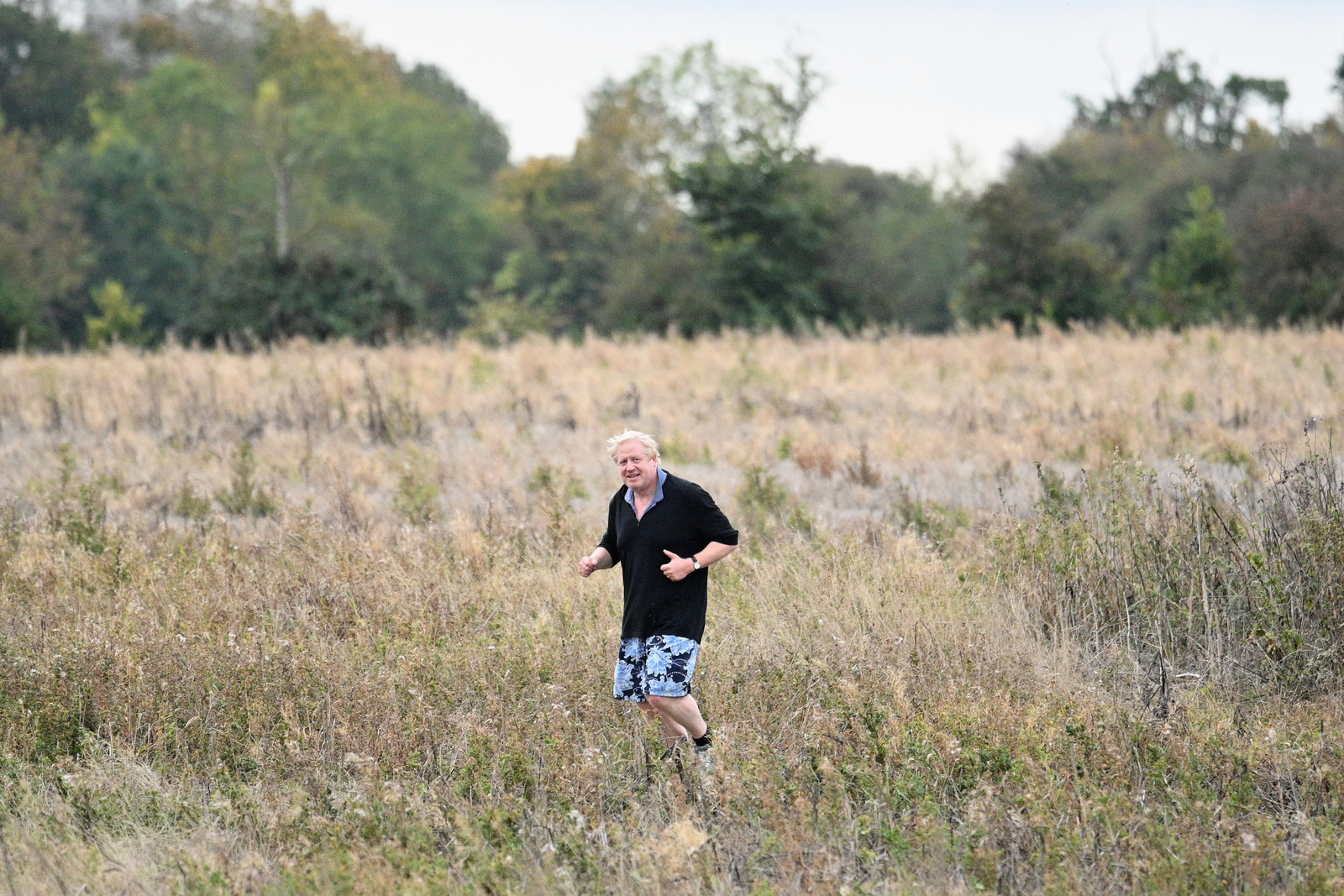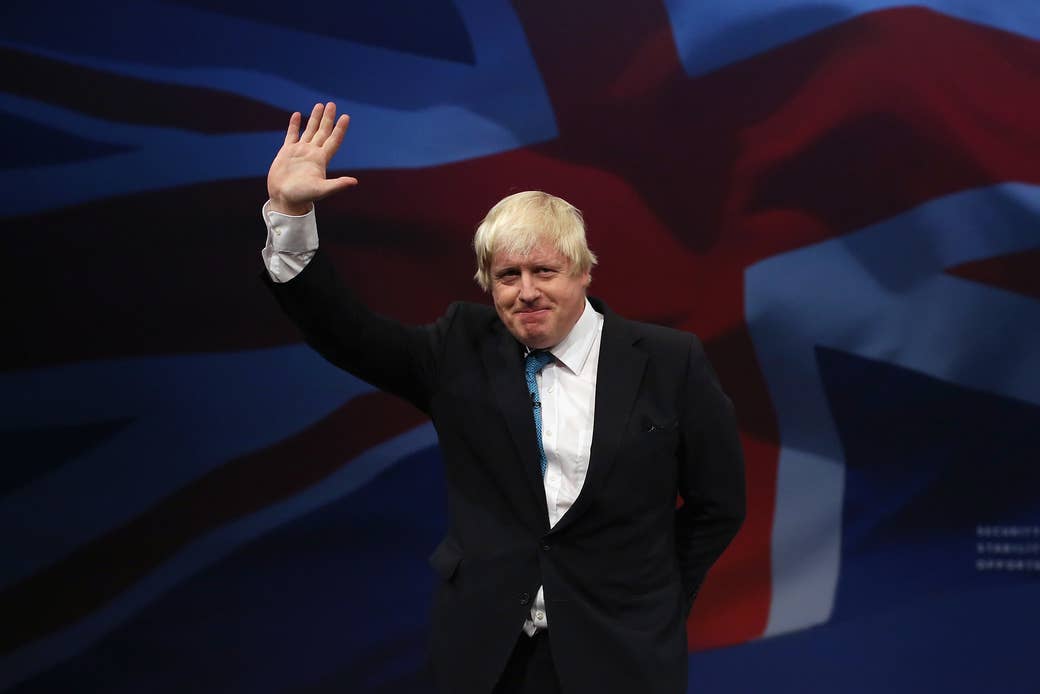
LONDON — A few days before Donald Trump was sworn in as president in January 2017, US secretary of state John Kerry took a short farewell tour to say goodbye to some of America’s closest allies.
His penultimate stop was London. To mark the occasion, and celebrate the special relationship between their two countries, Boris Johnson hosted a private dinner for his US counterpart at Scott’s, a fine-dining seafood and fish restaurant in swanky Mayfair.
Before the meal, the British foreign secretary gifted Kerry a small box. In it, to the surprise of both diplomatic parties, was a “Make America Great Again” Trump campaign cap.
For Johnson, it was an apparent attempt at comedy. For everyone else in the room, it was disrespectful to Kerry and his colleagues after a painful and divisive US election, which, as they saw it, put the Obama administration’s legacy and worldview in jeopardy.
Johnson, 54, is the overwhelming favourite among Conservative party members in the race to succeed Theresa May as party leader, and prime minister.
He is the darling of party-friendly and controversy-hungry media that follow his every move and utterance in his lucrative £275,000-a-year Daily Telegraph column. But for all that is known about Johnson, there has been little scrutiny of his actual performance at the Foreign Office, the only senior government job he’s held.
BuzzFeed News conducted interviews with seven senior US, European, and British officials and diplomats at the highest levels of government to interrogate Johnson’s time in office, and what it tells us about how he might perform as UK prime minister. All had firsthand experience of dealing directly with him on the international stage.
They spoke on condition of anonymity in order to be candid when sharing their views and experiences. None of the people BuzzFeed News talked to are among Johnson’s political rivals or connected in any way to the ongoing Conservative leadership battle.
For people who worked directly with and were actually in the room with him, Johnson wasn’t just funny or prone to innocent gaffes. They said he frequently fell short of the demands of the office: being “woefully” underprepared on important briefs, not knowing basic details, and making crucial mistakes.
These shortcomings were summed up by one British diplomat, who told BuzzFeed News how they had felt embarrassed about representing the UK for the first time in their career after a trip with the then foreign secretary to Southeast Asia because of Johnson’s lack of basic knowledge on the issues discussed during the trip, and his lack of sensitivity towards the local culture and customs of his hosts.
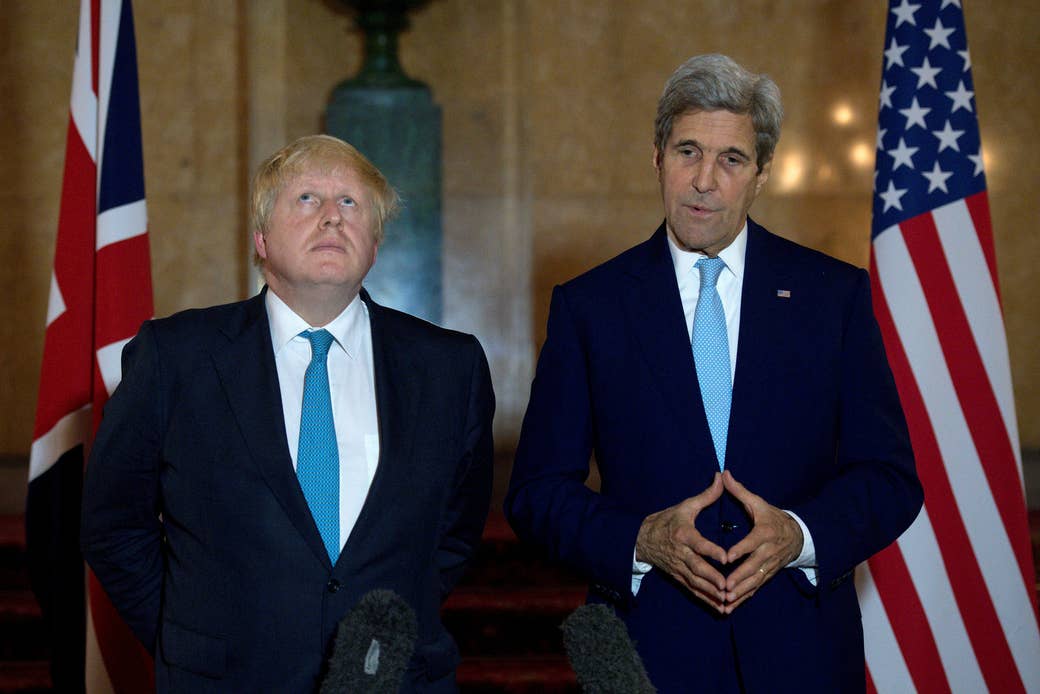
Gifting Kerry a MAGA cap wasn’t the only moment of awkwardness caused by Johnson’s attempts at irreverence, the officials said.
One official remembered Johnson entering a bathroom at the Quai d’Orsay, the palatial French Foreign Ministry in Paris, and jokingly asking a bemused group of diplomats about having his picture taken inside a majestic-looking bathtub.
An ambassador recalled when Johnson gathered foreign diplomats at Lancaster House in London last summer to celebrate the Queen’s birthday. He gave one of his typical speeches, full of jokes. “Some more funny, some less funny,” said the diplomat, who was present that day. But, by the time he had finished talking, the foreign secretary forgot to toast the Queen. The Foreign Office’s most senior civil servant, Sir Simon McDonald, had to promptly step in after the speech to give the toast.
“With Johnson,” said the ambassador, “it is form over substance. He is liked but not respected.”
A senior aide to a European foreign minister recalled with some curiosity how after their meetings, Johnson would “mess up” his hair before facing the press. “To make it more unruly,” the official said, while rubbing his own hair with both hands to mimic the former foreign secretary’s gesture.
These stories, while potentially embarrassing, could be dismissed as humorous episodes, or as just more examples of “Boris being Boris”. But some of his actions as foreign secretary, the officials said, were decidedly unfunny, and, at times, matters of life and death.
One described to BuzzFeed News the anger and expletives at the highest levels of the UK government after a careless and inaccurate statement by Johnson worsened the plight of Nazanin Zaghari-Ratcliffe, a British woman detained in Iran in April 2016, accused of plotting to topple the Iranian government. Her family vigorously deny the charges.
Following Johnson’s intervention, a senior Whitehall mandarin described Johnson as a “fucking moron”.
Johnson told Parliament in November 2017 that Zaghari-Ratcliffe was “simply teaching people journalism”. But her family have always maintained she was on holiday, and Johnson was condemned by MPs for potentially putting a British citizen in jeopardy through careless talk. Days later, his words were cited at a hearing in an Iranian court as evidence that Zaghari-Ratcliffe had been engaged in propaganda against the regime. She is still in prison.
Following Johnson’s intervention, a senior Whitehall mandarin described Johnson as a “fucking moron”, another official who witnessed the outburst told BuzzFeed News. Despite calls for him to be sacked, Johnson remained in May’s cabinet — a former Downing Street aide told BuzzFeed News that the prime minister felt that it was best to keep her most dangerous rival close.
One of the main files on Johnson’s desk during his two-year tenure as foreign secretary was the war in Yemen. The dossier was structured around what is known as the Yemen Quad — talks between the US, Saudi Arabia, the United Arab Emirates, and the UK.
Some of these meetings were held in London, where Johnson, in his capacity as host, was in charge of leading the agenda.
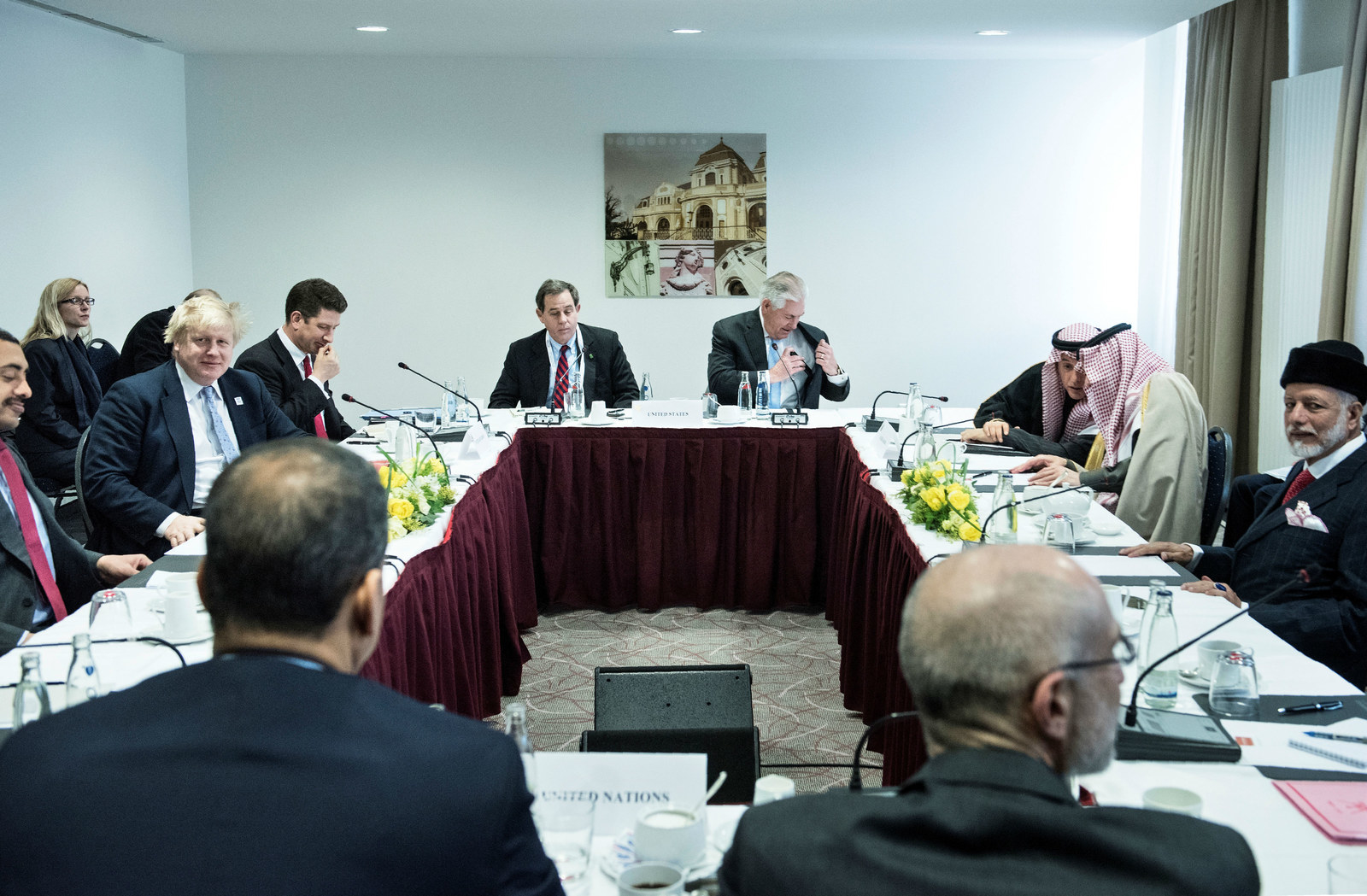
“He came with nothing. No ideas,” said a diplomat who attended the meetings. “You find this with many allies, but the one exception was always the UK,” the official added.
The official, who said Johnson was “woefully unprepared”, added: “We were shocked by how little he knew. He never seemed to have done basic preparation, including on issues he was leading.”
In a discussion with a counterpart about Iraq, a senior official present at the meeting said, Johnson wondered aloud whether Haider al-Abadi, Iraq’s prime minister, was Sunni or Shia Muslim. Some 70% of Iraq’s population is Shia.
“It’s not a crazy question for someone in a pub. But you would expect a UK foreign minister to know at least that much about Iraq.”
“It’s not a crazy question for someone in a pub. But you would expect a UK foreign minister to know at least that much about Iraq given the UK’s history in the country,” the official said..
“It was distressing.”
They added: “He [Johnson] was funny, but he didn’t seem to take the job, or the particular element of policy seriously.”
The UK has gone to great lengths to stress that neither the Brexit referendum nor Trump’s election would impact Britain’s desire to maintain a leading role in world affairs.
But, as the UK has struggled to come to terms with its biggest peacetime challenge in living memory, and Trump’s disdain for the rules-based multilateral world order, Britain has often had to hedge where its priorities and interests lie.
Under Johnson’s watch, the UK cooled overnight on putting more pressure at the UN on the Saudi Arabia–led coalition bombing Yemen, a US diplomat said.
Johnson also blocked EU foreign ministers from adopting a resolution supporting a two-state solution to the Israel–Palestine conflict, while according to the same diplomat, the UK expressed discomfort towards a US decision to abstain from a UN resolution condemning Israeli settlements. The abstention was the first time the Obama administration stepped aside to allow the UN Security Council to censure Israel, prompting then-candidate Trump’s ire.
As to the U.N., things will be different after Jan. 20th.
Such clumsy manoeuvring caused alarm in Washington at the time among former Obama administration officials, who in conversations with BuzzFeed News described the UK as one of the few reliable allies and countries that has the willingness, competence, and capabilities to make a difference on key issues around the world.
“It was clear that the UK’s role would be different with Johnson, Trump, and Brexit,” said a former senior US official. “In many ways, Boris is your Trump, but we were surprised that Theresa May and Number 10 bought into it too.”
Johnson became foreign secretary — one of the UK’s four great offices of state — in July 2016, just a few weeks after the Brexit referendum. His appointment to the cabinet for the first time by the new prime minister was greeted with widespread surprise.
The former mayor of London had been front and centre of the winning Vote Leave campaign in a vote that split the country, and his own party, in two. Amber Rudd, then the energy secretary, had said during a televised debate in the run-up to the vote that he was “not the man you want to drive you home at the end of the evening”.
To pro-EU voters in the UK and government figures in Europe, Johnson had become the face of promises about easy Brexit deals, predictions that leaving the EU would be cost-free, and controversial remarks, including the Leave campaign’s inaccurate flagship catchphrase that the UK sends £350 million a week to Brussels and its false threat that Turkey was joining the EU imminently.
This track record meant that his European counterparts were deeply suspicious from the start. A foreign minister from a major EU country avoided for months a bilateral meeting with Johnson after he took the job. The foreign minister created all sorts of excuses, until avoiding the meeting was no longer possible.
“He didn’t have full grasp of his dossiers. He was not strong on detail.”
“When we finally met, he was the antithesis of everything we thought a politician should be,” said a senior government official from that country. “He was a player, without any deep convictions.”
“He didn’t have full grasp of his dossiers. He was not strong on detail,” the official added. “The same feeling was shared across much of Europe.”
Many European leaders and foreign ministers held — and still hold — Johnson personally responsible for Brexit, and this has undoubtedly shaped their opinion of his performance as UK foreign secretary.
That played out for the first time at Johnson’s debut appearance at a meeting of European foreign ministers in July 2016, shortly after his appointment. Despite his attempts to lower the temperature, the tension caused by his presence in the room was “palpable”, said a diplomat present that day.
Johnson acknowledged there were issues the ministers disagreed on, but he tried to reassure his European colleagues by telling them that there were lots of areas where the UK would stay engaged after Brexit.
“People were not having it. They look at him with contempt and don’t trust him,” said the diplomat.
Other diplomats have more nuanced takes. “Our minister has a very favourable view of Boris. He thinks he [Johnson] is smart, not stupid,” said the ambassador of a small EU member state. “He doesn’t think he is a clown.”
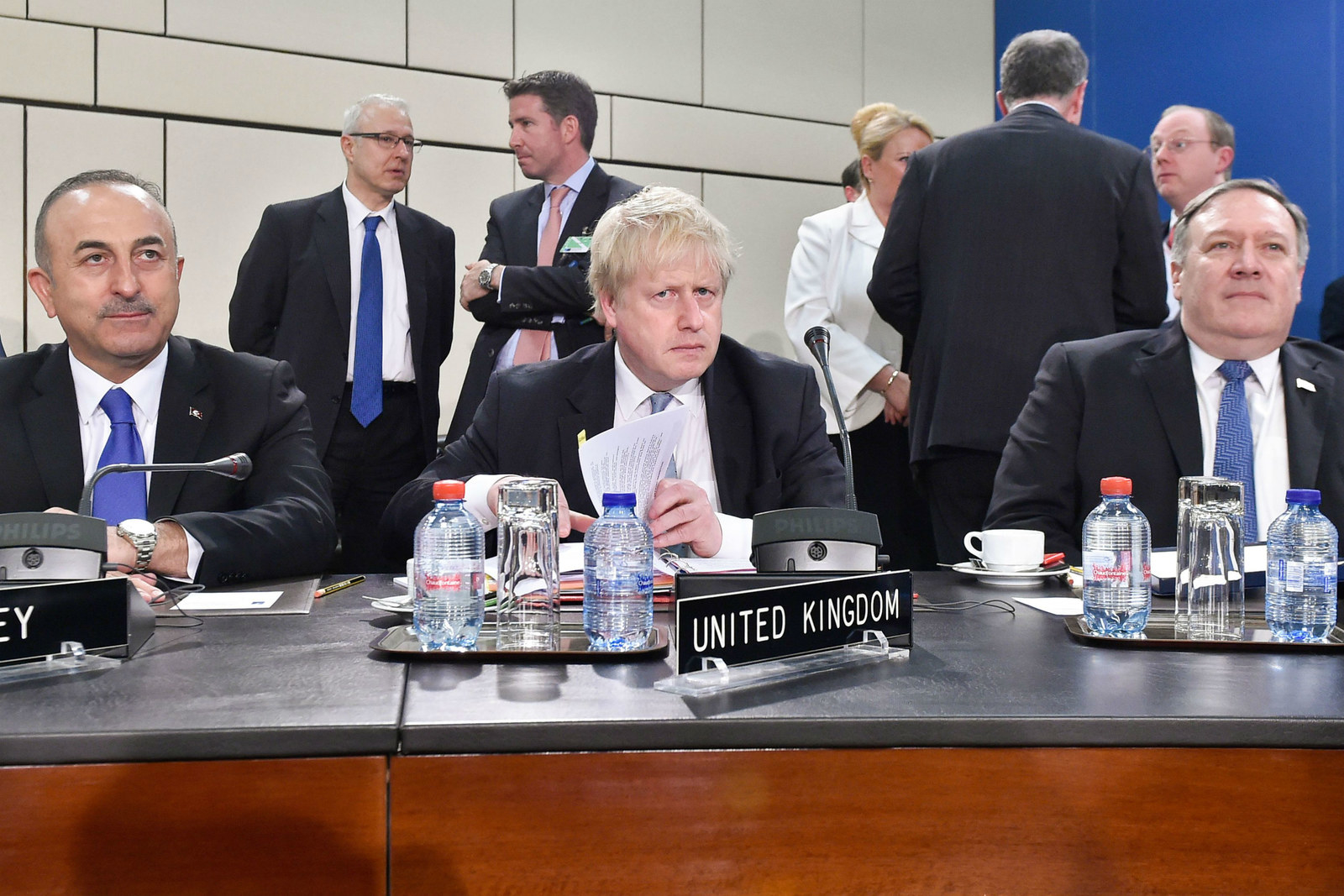
Some British officials counter that Europe’s judgement of Johnson is unfairly clouded by his role in the referendum, and Britain’s departure from the EU hung over his tenure despite not being part of his portfolio.
These officials argue that, the stark differences on Brexit aside, the foreign secretary was keen to engage with his counterparts on numerous other matters. They point to his travels to a majority of EU member states during his tenure as an example of how eager he was.
Few European ambassadors accuse Johnson of lacking enthusiasm. One ambassador recalled how they had several long and interesting conversations with Johnson. “In that respect, he was an open and engaging counterpart,” the senior diplomat from a small northern European country said. “He was interested in discussing things.”
The same diplomat noted that remarks by Johnson’s successor, Jeremy Hunt, comparing the EU to the Soviet Union, and apparently confusing Slovenia with Slovakia, have been more of a surprise because they were unexpected.
“He [Johnson] knew Europe better than Hunt...” the European ambassador said. “Johnson was generally interested in foreign policy.”
“He caused problems, but we expected the behaviour.”
But the ambassador added that the perception among much of London’s diplomatic corps was that Johnson appeared dismissive of Foreign Office advice on the details of specific issues — “and [a foreign secretary] should not be doing this [ignoring advice] in relations with other countries”.
The ambassador said: “On the one hand there was a lightness and openness. On the other, a lack of respect and the feeling he did not always take the work of foreign secretary seriously.”
He added: “You cannot just carry conversations only with charm and humour.”
Two years into the job, Johnson quit in protest over May’s Brexit plans in July 2018. On the day he resigned, the foreign secretary didn’t show up for a conference about the Western Balkans that he was hosting in London.
We’re still waiting for our host... #WBLondonSummit
Many of the officials and diplomats who spoke to BuzzFeed News stressed the importance of distinguishing between Johnson and the immediate impact of his handling of key issues, and the longer-term bond between their respective countries and the UK.
Several foreign diplomats also name-checked junior ministers at the Foreign Office, such as Tobias Ellwood and Alistair Burt, to point out the contrast between Johnson and the quality and expertise of the UK’s foreign policy personnel.
Some governments priced Johnson’s behaviour in. “The relationship was not damaged because it goes beyond the post-holder,” a European diplomat said. “He caused problems, but we expected the behaviour.”
Others, however, said that who holds the post of foreign secretary really does matter. “It is a symbol of the UK,” a European ambassador stationed in Britain said.
Contacted by BuzzFeed News, Johnson did not challenge any of the details in this story.
A friend of Johnson’s said: “Boris had many excellent achievements as foreign secretary, most noticeably, he played a key role in rallying the world against Russia’s barbaric use of chemical weapons with an unprecedented number [of] countries joining together to expel more than 150 spies in protest [at] the horrific Salisbury incident. This [was arguably] the UK’s greatest diplomatic triumph in decades.”
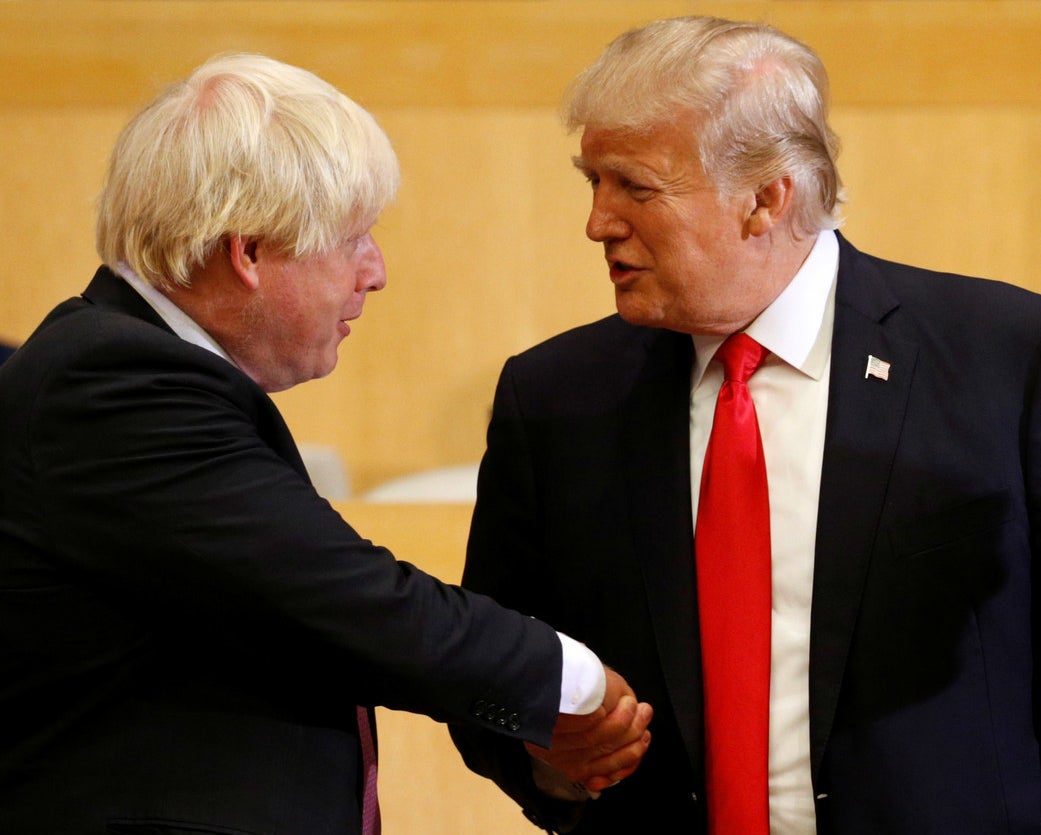
In an ironic twist of fate, one of May’s last acts in office will be welcoming president Trump to the UK on a state visit next week.
While stopping short of offering his full endorsement, speaking to the Sun newspaper on the eve of the trip, Trump said, “I think Boris would do a very good job. I think he would be excellent.”
The president added: “I like him. I have always liked him. I don’t know that he is going to be chosen, but I think he is a very good guy, a very talented person.”
The remarks echo comments Trump made during his first trip to Britain last summer, when he told the same newspaper that Johnson, who days earlier had quit government, would be “a great prime minister,” adding, “I think he’s got what it takes.”
As the race to succeed May as Tory leader begins in earnest this week, the British public may soon find out whether Trump is right. ●
